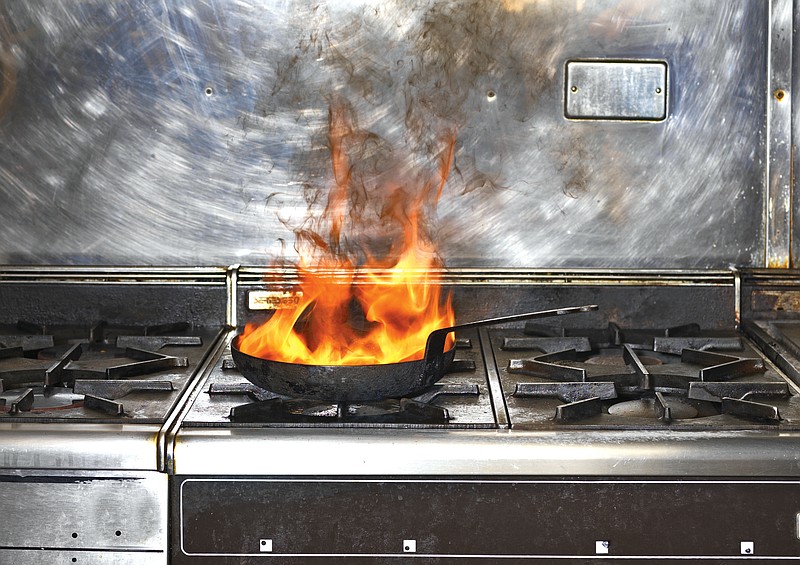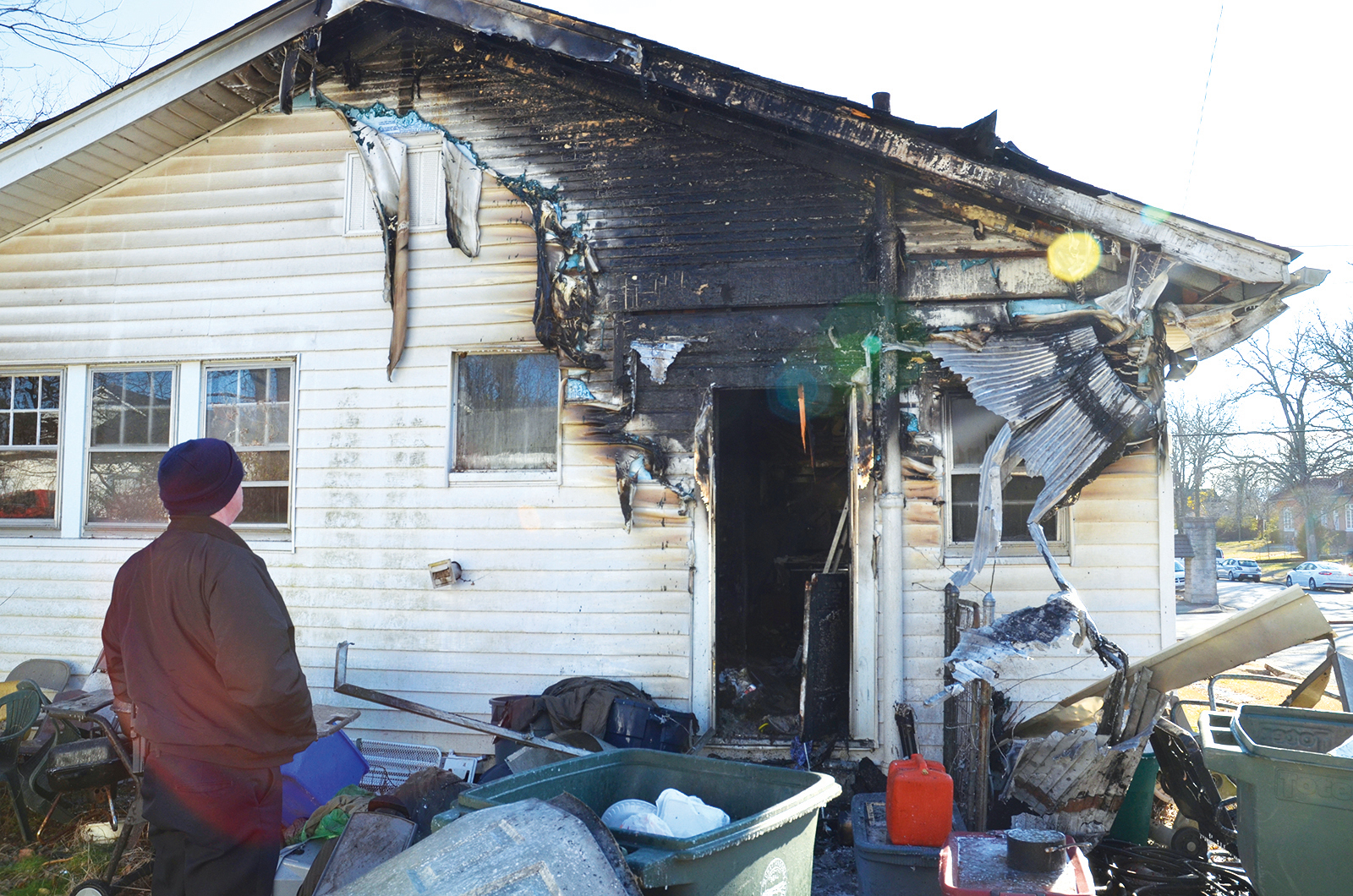In less than a week, two kitchen fires have disrupted the lives of Chattanooga families.
On Tuesday night, a grandmother and grandson had to flee their Westside apartment after a fire started in the kitchen; they escaped uninjured but had to find another place to stay.
Last week, a 50-year-old Chattanooga woman received second-degree burns on about 10 percent of her body, mostly her legs, as the result of a grease fire in her kitchen.
The kitchen of the Brewhaus on Frazier Avenue in the North Shore was damaged by a fire in late January and the restaurant has been closed since for repairs.
It's not surprising then that cooking fires are the No. 1 cause of home fires and home fires injuries.
Twenty-one of the 102 building fires that have occurred so far this year in Hamilton County started in kitchen, according to fire department records. Luckily, the 50-year-old woman was the only one injured in those fires. Forty-six additional fires confined to containers such as pots and skillets reported thus far in 2015 has resulted in three injuries.
And, most of the fires could have been prevented by taking a simple step: Stay in the kitchen while cooking
"The biggest thing to remember s that when cooking, keep the stove constantly attended," says Chattanooga Fire Marshal William Matlock. "If you leave the kitchen, turn off the stove. Everybody is busy and, before you know it, time gets away from you and you forget that you have something cooking on the stove."
By the time you realize it, a fire could have already started, he says.
Falling asleep is also a factor in almost one in five of cooking fire deaths.
"It's not uncommon for these fires to occur because people walk out of the kitchen and take a nap," he says. "People will forget they're cooking and fall asleep."
Kitchen fires are not only common, they're also costly and sometimes deadly.
About 150,000 residential fires caused by cooking occur annually, resulting in around 400 deaths and 5,000 injuries, according to a National Fire Protection Association study. Additionally, there is about $835 million in structural damages because of the kitchen-related fires.
"When cooking, always keep a potholder and a lid nearby so that you can slip the lid over the top of the container to put out the fire. And, always turn off the power," Matlock says.
Capt. Garon Mosby, public information officer for the St. Louis Fire Department, says sloppy cooking is another factor in some kitchen fires. Make sure to immediately clean up anything that spills or boils over, he told the St. Louis Dispatch.
"Everything has an ignition point. Everything, at a certain temperature, will ignite," Mosby says. "Many people believe an object has to touch a flame for it to catch fire, but that is not the case.
"Once the temperature builds, maybe it's not just what is on your stove (that can catch fire), maybe it's the plastic on your microwave; maybe it is your cabinetry. It's not just what is on your stove, a lot of the time it is what is near your stove."
And that's why it's important to call the fire department, even if you think you've put the fire out yourself, Matlock says.
"Most people don't have the knowledge or the ability to extinguish a fire. Even if you do manage to put the fire out, it's still advisable to call the fire department so they can make sure it's out," he says. "You don't want a fire coming out of the wall later.
"When in doubt, just get out (of the kitchen) and call the fire department."
And while it may be instinctual to grab the burning pot, pan, whatever and try to get it into the sink or out the door, that's a quick way to hurt yourself, he says. More than half of cooking-related injuries happen when people grab the burning container and drop it or its contents on themselves.
If the fire is in your oven, do not open the door, Mosby says, because that lets oxygen in and encourages the flame to grow. Keeping the oven door closed will often be enough to contain and extinguish the flames.
And never put water on a grease fire. When hot grease and water get together, a chemical reaction occurs that can cause a fireball. The water turns to steam, the steam picks up the tiny particles of hot grease floating in the air and, if there's a flame, whoosh! You've got a column of flame that can rise 10 to 15 feet.
For households with children, whether living there or visiting, steps should be taken to prevent them from getting cooking-related injuries, Matlock says. There should be a kid-free zone at least three feet around the stove, and children should never be held by someone who is cooking, carrying hot food or a hot liquid, he says.
Pot handles should be turned away from the stove's outer edges, and hot foods and liquids should never be placed close to the edges of tables and counters.
Also important in preventing fire-related injuries is something that fire departments worldwide say over and over: Get smoke detectors and make sure they're working.
"Everything else can be replaced - the kitchen, the home, the block - but we can't replace the people," Mosby says.
Contact Karen Nazor Hill at khill@timesfree press.com or 423-757-6396.

